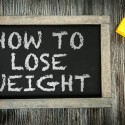31 Weight Loss Myths Scientifically Debunked
A myth is defined as any belief that a vast majority of people believe in, although it is actually not true.
Therefore, a weight loss myth is any belief associated with losing weight that is not true at all or is only partially true.
Most myths are usually centered around a basic principle or concept.
It is not necessary that this central concept itself is flawed.
In fact, in most cases, there may be absolutely nothing wrong with the principle upon which a supposed myth is based.
However, what happens over time is that the initial concept changes and it gradually transformed into a slightly varied or completely different statement, such that it is not accurate or true anymore.
This is when it becomes known as a myth.
Anyone who is trying to lose weight will often first attempt to do some background research on his own, which may lead one to articles or blogs that put forward various such myths, which claim to be very pertinent to one’s weight loss endeavor.
However, it becomes severely problematic when a person starts to adopt these myths or include them in his everyday life since what is claimed by these myths may not lead the person to his/her eventual goal of losing weight.
For example, after every couple of months, a new diet plan emerges that claims to be better than any other diet plan.
However, give it another couple of months and you will hear no mention of this diet again since people will have moved on to the next one.
So what does this mean?
This basically means that you should not hold something as being the absolute truth until and unless you have the relevant sources that provide evidence for its accuracy.
This article discusses thirty-three such weight loss myths, which you may have heard from people or come across on the Internet, and provides the accurate facts that debunk such myths.
The purpose of sharing these myths and the actual realities behind them is to serve as a warning for individuals so that they do not readily believe whatever is thrown at them in the future.
Furthermore, being aware of these myths and what goes on behind them is also going to help people in losing weight in a healthier manner, should they wish to do so, since they would now be able to tell myths apart from actual truths, and know which advice to adhere to and which advice to ignore.
Weight Loss Myths
Losing Weight is Healthy
If you ever hear anyone complaining of high blood pressure or a high blood sugar level, the first advice that most people are quick to offer is that they should immediately lose weight.
However, losing weight is not always healthy – one should try to lose fat, not muscle, although both eventually lead to weight loss.
Therefore, instead of undertaking crash diets or low-calorie diets that lead to loss of muscle, you should aim for better diets that are designed to burn fat and keep the muscle, which is also explained in this research by Michael Lowe and his team.
Foods with Negative Calories
There are various fruits and vegetables that help people in burning fat, such as broccoli, celery, and grapefruit because the energy that one obtains from these foods is less than the energy that is needed to digest them.
Thus, the idea is that you can eat these foods in any quantities and not gain any weight at all.
However, there are no foods with negative calories, it is a myth.
As Dr. Donald Hensrud explains, even extra low-calorie food has calories and could contribute to weight gain.
Natural Weight Loss Products are Safe
You need to know that FDA approval is not needed for natural supplements, which means that they do not undergo the same level of scientific scrutiny.
They may have bioactive substances that can have a significant impact on the body.
For example, the FDA banned ephedrine because of the associated health concerns.
You Need to Avoid All the Food You Like
However, the fact is that you ultimately have to consume fewer calories than how much you burn.
So it really doesn’t matter what kind of food you are eating.
In general, it is a good idea to avoid processed foods and fatty foods, since that is going to help you in losing weight faster.
You Should Eat Non-fat Foods
The fact is that you have to count your calories more than the amount of fat in your food.
So if you are having something rich in calories, it doesn’t matter whether it is low in fat.
A lot of these fat-free products actually contain a lot of sugar, and frequent sugar spikes can lead to visceral fat deposition.
Furthermore, you should not avoid fatty foods because they provide you with a sense of fullness.
You Should Avoid Fast Food
I’m not saying that fast food is the best food ever and you should eat it every day.
There is a good reason why it is called “junk food”.
However, it is OK to eat your favorite burger once every month or 2.
It is definitely not healthy (if you didn’t watch “Supersize Me”, watch it today!), but you need to give yourself a break from dieting and having a Big Mac once every 2 months could actually help you to achieve better results.
You Should Skip Meals
Having less than three meals in a day leads to increase in hunger.
So if you skip breakfast, for example, you are probably going to eat more during the remaining meals and will prefer foods rich in fats.
Therefore, you may end up having more calories even if you skip meals.
You Should Not Eat Nuts
Various studies have shown that that isn’t so; people do not gain weight if they eat nuts.
On the contrary, they may lose weight because nuts are not absorbed into the body and are usually excreted.
Also are satiating and increase resting energy expenditure by almost 11%.
You Should Control Your Portions
The fact is that you cannot lose weight until and unless you limit your caloric intake.
According to study from Medical News Today, to lose weight you need to have a caloric deficit, where you burn more calories than you ingest.
You Should Avoid Bread
In order to have a balanced diet, you need to take carbohydrates.
Macronutrients (protein, fat, and carbohydrates) do not make people fat – it is just an excess of calories that can do that.
According to a study by Foster GD and others in 2003, there is no significant difference in weight loss after participants have been on a low-carb diet for a year or more.
However, there was a 4% absolute difference in weight loss compared to low-calorie and low-fat diets after first 6 months.
So, to sum up, there is a short-term benefit but it disappears after 12 months.
You Should Avoid Desserts
If you’ll have dessert in the morning, it can actually reduce cravings later on in the day.
Thus, including desserts in the diet can help you lose more weight and also lose it for a longer period of time.
According to Dr. Daniela Jakubowicz and her team’s research, 200 obese people participated in a study where they were assigned a low-calorie diet.
Some of these people ate deserts in the morning and after 8 months there was no difference in weight loss between 2 groups.
So don’t deprive yourself of an occasional sweet treat.
You Can Lose Weight Only Exercising
According to research by Amy Luke and Richard S Cooper, physical exercises do not affect obesity risk.
However, the fact is that you can burn a lot of calories by exercising, but to lose weight you need to have a caloric deficit.
For example, in order to lose 1 lb in a week, one would have to burn 500 calories or more every day, which is equivalent to a brisk walk of two hours, a swim for half an hour or cleaning the house for three hours.
In the long run, restricting the diet can be much more effective when it comes to weight loss.
You Should Follow Fad Diets
You will find numerous examples of such fad diets, which are religiously followed by some individuals.
However, the fact actually is that these fad diets only work on a temporary basis.
While they may help you shed a couple of pounds, they also force you to limit your caloric intake, cut out many foods you previously had or even take pills that reduce your hunger.
However, this is not a very sustainable approach and cannot be adhered to in the long run.
Such diets usually do not have balanced meal plans, which is why they have short-lived results and come and go fairly quickly.
You Can Lose Weight by Becoming a Vegetarian
If you do not follow a properly balanced diet, it can lead to nutritional deficiencies and can make you fat.
Thus, such diets have to be carefully designed.
Furthermore, vegetarians may also gain weight if they indulge in starchy vegetables and certain fruits that are rich in calories.
Also, according to various studies, vegetarians usually have deficiencies of calcium, protein, zinc and other vitamins, which can increase the risk of various other health conditions, such as bone fractures and cardiovascular diseases.
A study performed by Dr. Christopher Gardner and his team showed no difference between low-carb Atkins diet and vegetarian Ornish diet.
The results actually showed better weight loss in low-carb group by almost 100% (10.4 lbs comparing to 5.7 lbs)
You Should Not Weigh Yourself
Take a second to think about this for yourself.
Do you think you would, for example, be able to ensure the success of a business without even taking a look at its balance sheet to see how much profit and loss it is making?
Similarly, anyone who wants to lose weight needs to pay close attention to what the scale is saying.
For most people, there is no steady decrease in one’s weight during the process of weight loss.
Instead, there are wide variations – there may be times when your weight goes down, and there are times when you would be upset to see your weight increasing.
However, if you have been closely monitoring any increases or decreases in your weight, you will be able to see that most of these weight increases are simply periodic.
Thus, you would not feel discouraged and you would not feel your enthusiasm waning either.
A good idea would be to weigh yourself approximately once a week.
You Should Starve
People believe that if they drastically cut down their calories, they can easily lose weight.
However, the fact remains that starvation is never going to lead to healthy weight loss – all you need to do is restrict your caloric intake.
However, this does not mean that you cut down calories completely from your diet.
It is recommended that you should not go below a certain set level, which is approximately one thousand calories per day.
Furthermore, starvation can lead to a decrease in the metabolic rate, which means that once you resume your regular eating habits, all that weight is going to be regained much faster.
In addition to this, also keep in mind the fact that any extreme caloric restriction can also lead to a nutritional imbalance.
Thus, your diet should be planned and adjusted in moderation.
You Should Take Slimming Pills
It is widely accepted by people that such pills can block the absorption of fat, increase your metabolic rate and reduce your hunger.
While it is possible that you may note a decrease in your weight as a result of having such pills, this does not mean in any way that the results of these pills are long term.
Like any other over the counter drug, these pills also have their own side effects.
You cannot simply resort to taking additional herbal supplements in order to make up for your lack of physical activity or poor dietary intake.
At the end of the day, you will have to ensure that you are exercising and eating properly.
Mayo Clinic research shows that these over-the-counter pills don’t have prolonging effect if you don’t do any other healthy life changes.
Healthy Foods are Expensive
While it is true that organic food items do cost more than the regular food items, it is not necessary for a healthy food to also be organic.
For example, you may be able to purchase cookies full of sugar and trans fat, or you can simply buy lots of healthy ingredients to make yourself a batch of cheap cookies, such as brown sugar, eggs, and oats.
You Should Avoid Snacking
On the contrary, snacking is actually good.
What matters is what you snack on.
For example, if you feel like having a snack a few hours after lunch, your food choices are going to determine whether that snacking is healthy for you or not.
Instead of reaching out for a chocolate pudding, for example, it would be better if you chose a healthy granola bar with lower calories instead.
Study by Kong A showed that people who snack properly experience better weight loss.
Water Helps to Lose Weight
Despite what people would like to believe, there is nothing that water can do to accelerate the metabolism.
It is, however, true that having water right before you have your meal is going to make you feel full already as described in this Obesity Journal research.
Furthermore, people often confuse the state of being thirsty with the state of being hungry.
Thus, next time you find yourself craving something to eat, quickly gulp down some water or juice, and you will see for yourself that your hunger will have completely gone away.
If You Have Stable Diet and Exercise Routine You Don’t Gain Weight
This is actually nothing more than a myth since you have to consider the fact that over time your body’s metabolic rate goes down.
A seventy-year-old man has more fat and less muscle than a twenty-year-old man, even if they both have exactly the same weight.
Thus, keep in mind the fact that your metabolism is slowly moving downwards every year, which means that you should either increase a number of physical activities you engage in or limit your caloric intake.
You Should Not Take Break from Dieting
In fact, it is completely okay if you cheat once in a while.
You may even have seen some recent diet patterns adopting this concept since some of them now ask the individual to take a weekend off.
In fact, a lot of people are actually successfully able to lose weight thanks to such cheat days.
If you take a day or even a weekend off from your diet plan, it gives you the mental break you need to enjoy yourself by having all your favorite foods.
Furthermore, having more calories on these cheat days makes use of the principle of shifting calories, which can actually speed up the metabolism of the body.
Yo-yo Dieting Causes Permanent Damage to Metabolism
What happens is that some people desperately want to lose weight and, therefore, have a very restricted diet that contained very few calories.
This leads them to shed weight quickly, which then makes them excited.
However, this process also makes them lose the body’s muscles.
Therefore, this leads to a decrease in their metabolism, which means that the weight loss comes to a standstill as well.
They quickly realize that it is not possible to stay on that low calories diet forever, and then quit.
This means that they now resume their old eating habits until they come across some other diet that they wish to try out.
However, the actual fact is while it does damage the metabolism, this damage is not irreversible.
The best way to fix the metabolism of the body is to build muscles.
Therefore, it is imperative to exercise properly and have a healthy diet, which will lead to muscle gain.
Aerobics is Better than Weight Lifting
In fact, most people who are obese and want to lose weight are first asked to start walking or jogging regularly.
However, this is mainly because it is easier to carry out aerobic exercise compared to anaerobic strength training.
The fact, however, is that strength training can burn twice as many calories compared to aerobic activities.
There are two main reasons behind this.
The first reason is that aerobic activities can only burn energy while they body is performing them.
This means that as soon as you stop working out on the treadmill, your body will stop burning fat.
However, strength training can keep the body’s metabolism high for up to two days after the activity.
Furthermore, it also leads to muscle gain.
A study done by Duke University proved that there is no significant difference in weight loss between those who did just aerobics and resistance training.
Carbs Make You Fat
It is scientifically proven that low-carb diets can help people in losing weight.
In some cases, people do not even have to limit their calories; all they need to do is reduce the number of carbohydrates they are having and have a high protein intake.
However, this does not imply that carbohydrates cause people to gain weight.
The actual truth around which this myth is centered is that refined carbohydrates, such as sugar and refined grains, are associated with weight gain.
At the same time, however, whole foods are extremely healthy, even though they have a high carbohydrate content.
American Institute for Cancer Research even provides some great recipes centered around complex carbs, which supposed to help you manage your weight.
Obesity Depends on Willpower
This is inaccurate because losing or gaining weight is not always a choice or dependent on your willpower.
There are many different factors that all come together to lead to obesity.
For example, there are a number of genetic variables that are linked to obesity, and several different medical conditions can also lead to an increase in the risk of gaining weight, such as PCOS, hypothyroidism, and depression.
In addition to this, the human body has several biological and hormones pathways, which are used to regulate the body weight.
There may sometimes be a problem with these pathways in people who are obese, which means that it makes it very hard for them to lose weight and maintain it as well.
For example, an individual who is resistant to leptin (a hormone found in the body) is much more likely to be obese compared to an ordinary individual.
Leptin is used to tell the brain that the body has enough fat stored inside it.
Since the leptin in the body is unable to deliver the message to the brain, the brain continues to think that the body is starving.
For people who face this biological problem, there is very little that they can do in its face, no matter how strong their willpower may be.
Therefore, next time someone says that it is purely up to one’s choice whether he or she wants to be fat or thin, remember that behavior determines your eating, and that depends on the biochemistry and physiology of the body.
All Calories are the Same
Although they have the same amount of energy, this does not mean that each calorie source will have the same effect on the body.
What this means is that one calorie from a fat source is not going to have the same effect on your weight as one calorie from a protein source.
This is because foods go via various metabolic pathways, which means they can have varying effects on hunger, as well as the hormones regulating body weight.
People also believe that losing weight is generally a linear process.
However, your weight continues to fluctuate.
There are times when it may seem higher than what it usually is or ought to be, and there are times when it is lower than this level.
In women, for example, water weight fluctuates during their menstrual cycles.
You Should Not Try to Lose Weight Quickly
Instead, it is advised that people should approach weight loss in a slow and gradual manner.
However, contrary to popular belief, there is actually no evidence that supports this.
In fact, a bigger issue is whether people are able to retain and maintain their weight loss compared to how quickly they are shedding off pounds.
Crunches Helps to Get Rid of Belly Fat
According to Green Med Info study, abdominal exercises do not help with belly fat.
I know this doesn’t make sense, but the study has been performed on 24 healthy participants and after 6 weeks there was no significant improvement in the abdominal area.
This proves that if you really want to get rid of those love handles, you need to concentrate on your diet while you do your workout routine.
Breakfast Helps to Lose Weight
This is well-known misconception since everybody knows that “breakfast is the most important meal of the day”.
However, the actual scientific proof of this is inconsistent.
A recent study at Columbia University showed that overweight people who skipped breakfast actually lost weight.
This means that the jury is still out on this issue, so don’t be upset if you skip a breakfast or two.
All Fats are Bad
Fats are not made equal.
Many types of fat are crucial to maintaining your health.
A study done by Brigham and Women’s Hospital showed that replacing saturated fats with unsaturated ones helped to lower risk for numerous deceases.
So try to stay away from saturated fats, but say “yes” to monosaturated fats like olive oil.
Conclusion
After going through this article, you will probably come to realize how many myths there are circulating around with regards to weight loss, and how readily most people come to accept them and believe in them, since there are very few people who actually go through the effort of finding out whether there is any research backing these supposed truths.
The purpose of making people aware of these myths is to help them organize their own weight loss plans and diets in a much more informed manner, such that they can actually lose weight in a healthy way, which can be sustained by them as well.
Thus, there is no purpose of being extra harsh on yourself by cutting out foods that you love or subjecting yourself to a very limited diet if you want to lose weight.
You do not need to ignore your cravings for your favorite food item or cut out desserts from your diet completely.
Instead, try to plan a healthy diet for yourself, which can provide you with all the basic nutrients that you need in order to stay healthy and fit.
At the same time, try to ensure that you are burning more calories than you are taking in if you want to lose weight as well.
Do you know other myths that I didn’t mention in this article?
Share them in the comments section.
FDA Compliance
The information on this website has not been evaluated by the Food & Drug Administration or any other medical body. We do not aim to diagnose, treat, cure or prevent any illness or disease. Information is shared for educational purposes only. You must consult your doctor before acting on any content on this website, especially if you are pregnant, nursing, taking medication, or have a medical condition.
HOW WOULD YOU RATE THIS ARTICLE?






